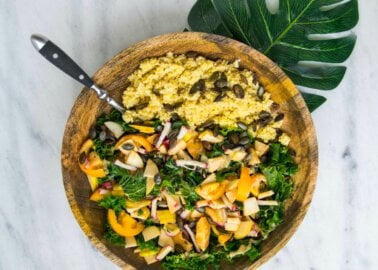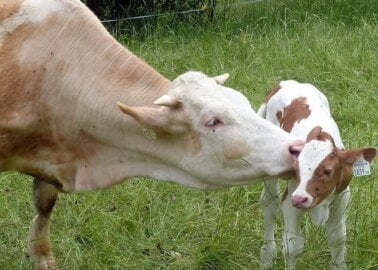Our Appetite for Chicken Flesh Is Destroying the Planet
Humans’ appetite for chicken flesh is devastating for the birds and our planet.
Almost a billion chickens suffer and die for their meat and eggs every year on UK farms in severely crowded conditions in which disease can spread like wildfire. These farms use vast amounts of natural resources and cause catastrophic damage to the environment, driving habitat loss, pollution, and climate change.
Ecological Crisis
The scale of chicken exploitation and suffering is difficult to grasp. Globally, in 2019, more than 72 billion sensitive, intelligent chickens were killed for their flesh, and over and then killed.
Huge swathes of land are cleared to grow crops to feed this vast chicken population. Much of the soya used to feed the UK’s farmed chickens is grown in and around the Amazon rainforest. This drives rainforest destruction, which means that natural habitat disappears, wild animal populations decline, and species go extinct at an escalating pace. Seventy-five per cent of global agricultural land is being used for animal agriculture. This includes 33% of all cropland, which is used to grow animal feed. This land could instead be “rewilded” – given back to nature to provide a home for struggling wild animal populations – or we could use a fraction of this land to grow food for humans.
Eating animal flesh is an inefficient way of feeding people – about one-tenth as efficient, on a calorie basis, as eating crops directly.
Climate Crisis
Eating chicken flesh or eggs is worse for the climate than eating any vegan equivalent.
According to the BBC “climate change food calculator”, producing one serving of chicken flesh generates nine times more greenhouse gases than producing a serving of tofu does, and for eggs, it’s three-and-a-half times more. and without this natural carbon dioxide–absorbing ecosystem, global warming intensifies.
UK Environmental Damage
Chicken excrement run-off from farms pollutes waterways and soil. One example of this is in Herefordshire and the surrounding counties, where the River Wye has been described as “pea soup”. The phosphate-rich excrement from chicken farms causes algal blooms, which remove oxygen from the water, killing aquatic life. Birds on these farms are largely featherless, living in cramped, filthy sheds with untreated, bloody wounds, as PETA’s investigation into farms that supply the “Happy” Egg Co revealed.
The urine and excrement from chicken farms pollutes the air, too, in the form of ammonia gas. Residents living near chicken farms have complained of the dreadful stench, but this smell is not just disgusting, it’s noxious. A 2019 study found that if ammonia emissions from UK farms were halved, 3,000 premature deaths per year could be prevented.
Disease Threat
The intensely crowded, filthy conditions that chickens endure on farms make them breeding grounds for disease. Over a three-year period, more than 60 million chickens in England and Wales were rejected at the slaughterhouse because of disease and deformities, and – with an average on-farm mortality rate of 4% – millions more birds die before they even get that far.
Drugs are routinely used in feed to keep chickens alive on intensive farms. Around 70% of the total volume of all medically important antibiotics is sold for use on farms. Drug-resistant superbugs have been identified by the United Nations as “the biggest threat to modern medicine”. Antibiotic-resistant strains of E coli bacteria and Campylobacter have for years been found in chicken flesh sold in supermarkets,
Outbreaks of avian influenza (bird flu) continue to occur in the UK and worldwide, highlighting that chicken farms risk causing the next pandemic.
Immense Suffering
Chickens are the most abused land animals on the planet. They naturally love to play and will run, jump, and sunbathe when given the chance, but those raised for their flesh are confined to filthy, windowless sheds with up to 50,000 other frightened birds, unable to do any of the things that come naturally to them.
Bred to grow unnaturally large as quickly as possible, these sensitive animals often suffer from crippling leg deformities, leaving many unable to move . Forced to sit in their own waste, they suffer from ammonia burns to their hocks and struggle to breathe in the hot sheds. Some die of heart failure, as their infant hearts are unable to support their enormous bodies.
Around 50% of hens on egg farms in the UK live in a cage for their entire life, never feeling the sun on their backs or enjoying the opportunity to express their natural behaviour. Pushed to physiological extremes by genetic and environmental manipulation, they are forced to lay as many eggs as possible, which leaves them emaciated. At around 18 months old, they will be discarded and sent to slaughter.
What You Can Do
You can’t call yourself an environmentalist or an animal lover if you eat chickens and their eggs. Go vegan today to spare these marvellous birds – and all the animals we share this planet with – this suffering while significantly reducing your carbon footprint.




